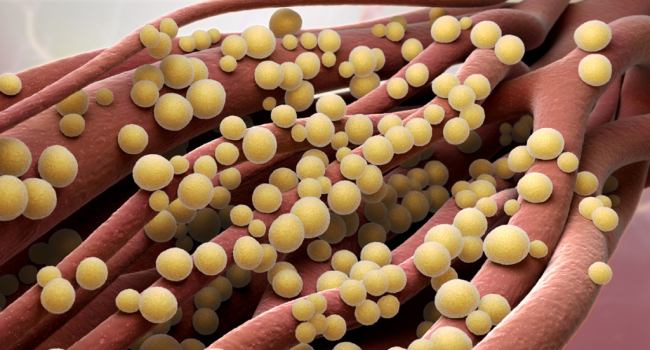Scientists have discovered a compound that makes the bacterium methicillin-resistant Staphylococcus aureus (MRSA) more vulnerable to antibiotics. The work of British biologists from the University of Bath was published in the journal Frontiers in Microbiology.
Staphylococcus aureus causes difficult-to-treat diseases such as sepsis and pneumonia. It differs in that it is resistant to most antibiotics that modern medicine uses.
Scientists have discovered a new feature of polyamines, compounds that are found in most living organisms. They were previously thought to be essential for any organism, including bacteria. However, they turned out to be toxic to MRSA.
The compound was modified and tested against 10 different antibiotic-resistant strains of bacteria. The new compound was effective against all strains, resulting in a cessation of further bacterial growth and a decrease in antibiotic resistance.


